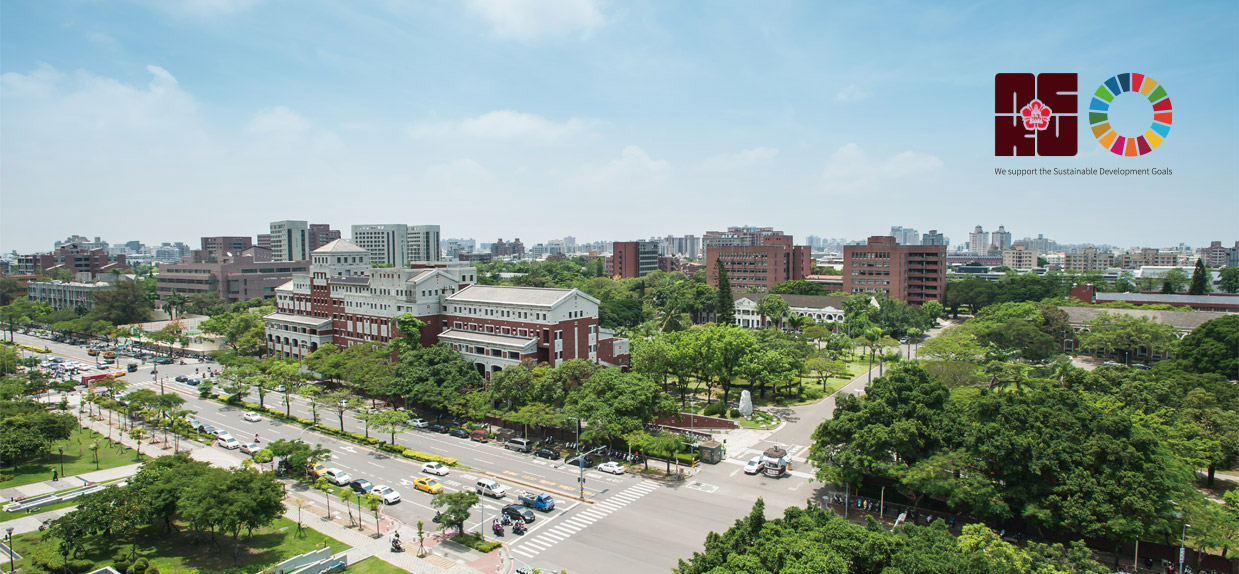Biotechnological Applications in Agriculture and Ecology
National Cheng Kung University (NCKU) advances biotechnological applications in agri-food, aquaculture, and ecological sustainability through research demonstration, field linkage, and talent cultivation, guided by a commitment to making technology a public good and empowering farmers, actively translating research into practical production applications.
Agricultural Innovations and Local Product Upgrading
In concrete outcomes, the Life Sciences team achieved breakthroughs in the secondary fermentation of Dongshan “Maihime” coffee, upgrading local agricultural products. Meanwhile, the Department of Materials Science, working with cross-institutional partners, developed sorghum biochar for the Chianan Plain, aligning with the UNFCCC’s recent “4 per 1000” initiative and demonstrating yield gains and soil-health benefits as a pathway for local revitalization.
Smart Aquaculture Development
In aquaculture, NCKU has developed an intelligent fry production system that reduces labor by 60% and maintains a 3–5% survival rate—over ten times the typical 0.3%—positioned for technology transfer to address an aging workforce and labor shortages and to help the industry move toward smart aquaculture.
Sustainability Education and Community Collaboration
For knowledge dissemination, OpenCourseWare (OCW) includes topics such as “Climate Change and Food Security” and “Sustainable Agriculture,” embedding sustainability literacy into the curriculum and making it openly available to the public. In parallel, the six-year “Satoyama Scepter Initiative” underscores that beyond developing carbon-reduction technologies, NCKU will collaborate with rural communities and farmers to promote—from the grassroots—the vision of harmonious coexistence between people and nature.
National Cheng Kung University (NCKU) advances biotechnological applications in agri-food, aquaculture, and ecological sustainability through research demonstration, field linkage, and talent cultivation, guided by a commitment to making technology a public good and empowering farmers, actively translating research into practical production applications.
Agricultural Innovations and Local Product Upgrading
In concrete outcomes, the Life Sciences team achieved breakthroughs in the secondary fermentation of Dongshan “Maihime” coffee, upgrading local agricultural products. Meanwhile, the Department of Materials Science, working with cross-institutional partners, developed sorghum biochar for the Chianan Plain, aligning with the UNFCCC’s recent “4 per 1000” initiative and demonstrating yield gains and soil-health benefits as a pathway for local revitalization.
Smart Aquaculture Development
In aquaculture, NCKU has developed an intelligent fry production system that reduces labor by 60% and maintains a 3–5% survival rate—over ten times the typical 0.3%—positioned for technology transfer to address an aging workforce and labor shortages and to help the industry move toward smart aquaculture.
Sustainability Education and Community Collaboration
For knowledge dissemination, OpenCourseWare (OCW) includes topics such as “Climate Change and Food Security” and “Sustainable Agriculture,” embedding sustainability literacy into the curriculum and making it openly available to the public. In parallel, the six-year “Satoyama Scepter Initiative” underscores that beyond developing carbon-reduction technologies, NCKU will collaborate with rural communities and farmers to promote—from the grassroots—the vision of harmonious coexistence between people and nature.







